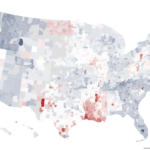Top-producing teams don’t debate opinions in their weekly meeting—they audit the same operating metrics, in the same order, and make decisions. If your review is drifting into anecdotes, you’re leaving capacity, margin, and market share on the table.
What follows is a tight, eight-metric operating view designed for elite teams and brokerage operators. It prioritizes leading indicators over lagging trophies, speed over sentiment, and decisions over discussion. Build your cadence around these numbers and scale with intent.
Set the cadence, then instrument it
Weekly reviews only work if your data is complete and comparable. Define sources, lock definitions, and automate capture before you scale visibility. Digital leaders win by measuring the full funnel end to end—marketing through revenue—then iterating faster than peers. See How B2B digital leaders drive five times more revenue growth than their peers (McKinsey) for the growth impact of integrated operating views. The mandate is simple: one source of truth, one weekly rhythm, zero exceptions.
Demand and pipeline quality
1) Qualified Lead Volume by Source (QLVs)
Definition: Count of leads that meet your explicit qualification standard (budget, timeline, geography, readiness) by channel for the last seven days.
Why it matters: You need leading indicators you can influence now. Raw lead counts are noise; qualified lead volume is usable signal.
Operator move: Standardize qualification in your CRM, require UTM tagging, and publish a weekly heat map by source. If a channel delivers under 10% of total QLVs for four consecutive weeks, cut or fix it.
2) Inquiry-to-Appointment Conversion Rate
Definition: Percentage of qualified inquiries that convert to a set appointment within 72 hours.
Why it matters: It measures early-funnel friction and script discipline—two levers that swing capacity without adding headcount.
Operator move: Track by source and by coordinator. If a source underperforms, inspect speed-to-first-response and call attempt cadence before replacing the channel.
3) Pipeline Coverage Ratio (PCR)
Definition: Weighted GCI in the next 90 days divided by your 90-day GCI target. Target range: 3x–5x depending on price band volatility.
Why it matters: PCR is your forward visibility. Below 3x, you’re under-exposed; above 5x, quality control and service level risk rise.
Operator move: Publish PCR by segment (price tier and location). If PCR dips two weeks in a row, mandate additional prospecting blocks and move budget toward proven QLV sources.
Sales execution and speed
4) Appointment-to-Agreement Conversion
Definition: Percentage of kept appointments that convert to a signed buyer agency or listing agreement within seven days.
Why it matters: It’s the most direct read on consult quality, offer structure, and proof-of-value. Minor gains here compound across the funnel.
Operator move: Review conversion by agent and by appointment type (buyer vs. listing). Implement a post-appointment debrief in the CRM with three structured fields: pain point, proposed plan, next step. Coach to the gaps, not the personality.
5) Listing-to-Contract Cycle Time (Median Days)
Definition: Days from list live to executed purchase contract, median for the last 30 days, reviewed weekly.
Why it matters: This is marketplace truth. Longer cycles signal pricing miss, positioning issues, or deteriorating demand in a segment.
Operator move: Segment the metric by price band and neighborhood. If median days increase week over week in a band, reset price guidance and refresh creative. Speed is a competitive advantage—treat it like one.
Capacity and accountability
6) Agent Capacity Utilization
Definition: Active client load per agent FTE against a defined threshold (e.g., 12 active buyer clients or 8 active listings per agent depending on support model).
Why it matters: Overloaded agents miss follow-up windows and under-leverage systems; underloaded agents inflate cost per closing. Utilization anchors staffing, lead routing, and promise-to-market.
Operator move: Publish utilization weekly and route new demand to available capacity first. Use a simple green/yellow/red status per agent. Move from intuition to allocation. High-performing companies that move to continuous performance dialogue over annual reviews increase speed and clarity; see The Performance Management Revolution (Harvard Business Review).
Marketing and unit economics
7) Marketing Efficiency Ratio (MER)
Definition: Gross commission income attributed to marketing divided by total marketing spend for the same period. Review on a rolling 28–35 day basis, report weekly.
Why it matters: MER captures portfolio effectiveness better than channel-level CPA alone. It enforces discipline on top-of-funnel spend relative to realized revenue.
Operator move: Attribute conservatively using first-touch plus last non-direct where possible. If MER drops below your threshold (e.g., 4.0), freeze experimental spend and redeploy to top-performing sources until recovery. Align MER targets with cash flow and PCR to avoid starving next quarter’s pipeline.
Client advocacy and retention
8) Net Promoter Score (NPS) within 7 Days of Closing
Definition: Promoters minus detractors from a single-question survey, captured within a week of closing or listing launch for sellers.
Why it matters: High-NPS firms grow more efficiently through referrals and repeat business. NPS is a direct proxy for future revenue and protects brand equity. See The One Number You Need to Grow (Harvard Business Review).
Operator move: Automate the survey, not the response. Escalate any detractor to leadership within 24 hours. Track NPS by agent and by process milestone. If NPS diverges from cycle time or conversion improvements, you’re optimizing the wrong thing.
How to run the weekly meeting
Keep it 45 minutes. Publish the scorecard by 7 a.m. local. No spreadsheets in the meeting—only decisions.
- Five-minute scan: Are we red on QLVs, PCR, MER, or NPS? Call it.
- Ten-minute demand review: If QLVs or inquiry-to-appointment are down, fix speed-to-lead or reallocate budget this week—no waiting for month-end.
- Ten-minute execution review: Appointment-to-agreement and cycle time by segment. Assign one coaching action and one pricing or positioning action.
- Ten-minute capacity allocation: Re-route demand based on utilization. Pause discretionary projects if utilization is red.
- Ten-minute risks and commitments: Confirm two to three commitments tied to this week’s numbers. Owners assigned. Due dates set.
For leaders who want deeper operating cadence and instrumentation, we publish running playbooks inside RE Luxe Leaders® Insights. Our RELL™ operating frameworks are built to integrate directly with your CRM and finance stack—no extra theater, only signal.
Definitions and tolerances
Standardize definitions now or argue about them forever. Document the following in your operating manual:
- Qualified lead: The minimum criteria for a sales-ready conversation in your market and price band.
- Attribution rules: First-touch or last non-direct. Hold it constant for 90 days.
- Thresholds: Target and floor for PCR, MER, and NPS, plus capacity limits by role.
- Segmentation: Price bands, geographies, and client types you will report every week.
Publish a one-page glossary with the scorecard. If a metric is disputed in the meeting, the glossary wins. This discipline is why elite operators compound performance while others repeat the same conversation each quarter.
Conclusion
Elite firms operationalize focus. These eight real estate operating metrics give you a weekly read on demand quality, execution speed, capacity, unit economics, and client advocacy—the levers that determine cash flow and enterprise value. Run the rhythm, protect the definitions, and move budget and attention to what the data validates. That is how you scale a firm that outlasts the market cycle and the founder.
RE Luxe Leaders® works privately with top operators to install the RELL™ operating cadence, instrument the right dashboards, and align leadership conversations to real numbers—not narratives.





